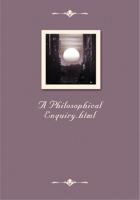Having realised that the Emperor was unable or unwilling to prevent them they continued to act in open defiance of the /Ecclesiasticam Reservatum/. Where the territories of a Catholic bishop were situated in close proximity to the states of Protestant princes recourse was had to various devices to acquire the lands of the Church. Sometimes the bishop was induced to surrender them in return for a fixed grant or pension, sometimes the chapter was persuaded to elect as bishop some scion of a princely family, who was well-known to have leanings towards Protestantism, and in a few cases the bishops themselves solved the problem by seceding from the Catholic Church while continuing to administer the territories to which their episcopal office was their only title. In this way two archbishoprics and fourteen bishoprics, amongst them being such wealthy Sees as Magdeburg, Bremen, Brandenburg, and Osnabruck had passed into the hands of the Lutherans, and it required a very special effort to prevent two such important centres as Cologne and Aachen from meeting with a similar fate. Gebhard, Archbishop of Cologne, a man of scandalously immoral life, completed his infamous career by taking as his wife one who had been his concubine, announcing at the same time that he had gone over to Calvinism. The chapter of Cologne Cathedral backed by the people took steps to rid themselves of such a superior, and the chapter was supported warmly by both Pope and Emperor. Gebhard was obliged to escape to Strassburg in the cathedral of which he held a canonry, and where he succeeded in creating confusion. Two archbishops claimed the See of Strassburg, one loyal to the Catholic Church and one favouring Protestantism. This disgraceful contention went on for years, till at last the Protestant champion was induced to surrender on the payment of a large composition. The See of Aachen was seized by force in 1581, and was held for fifteen years, at the end of which the Protestants were obliged to abandon their claims.
Unfortunately for the Catholics the Emperors who succeeded Charles V.
were not strong enough to deal with such a dangerous situation.
Ferdinand I., sincere Catholic though he was, mindful of the terrible disasters brought upon his country by the religious wars, strove with all his might against their renewal. His successor Maximilian II.
(1564-76) was so strongly inclined towards Protestantism that he made many concessions to the Protestants even in his own hereditary dominions. He invited distinguished Lutheran preachers to Vienna, conferred on Protestants influential positions at court, and gave permission for Protestant religious services at least to the nobles of Bohemia, Silesia, and Hungary. Several of the prince-bishops anxious to stand well with the Emperor attempted to introduce reforms in Catholic liturgy and Catholic practices without any reference to the Holy See. The alarming spread of Protestantism in Austria, Hungary, Bohemia, and Silesia, fostered as it was by the general policy of the Emperor, tended to make the position of the Catholic Church extremely insecure.[1]
But fortunately at that time a strong Catholic reaction began to make itself felt. The reforming decrees of the Council of Trent did not fail to produce a decided improvement in the condition of the bishops and clergy. The new religious orders, particularly the Jesuits, had thrown themselves into the work of defending the Catholic position, and the colleges established by the Jesuits were turning out the younger generation of Catholics well-equipped for the struggle that lay before them. The catechisms which the Jesuit preachers scattered broadcast through the country, and the attention paid by them to the proper religious instruction of the people helped to remove the bad impressions produced by the misrepresentations of the Lutherans, and tended to arouse a strong, healthy, educated Catholic opinion in public life. Fortunately, too, at the time when the Emperors were a danger rather than a protection to the Church, the rules of Bavaria undertook boldly the defence of the old religion, and placed themselves at the head of the Catholic forces.[2] Albert V. (1550-79)insisted on the promulgation of the decrees of the Council of Trent, and made an oath of loyalty to the Catholic Church an indispensable condition for office in his kingdom. He favoured the Jesuits, encouraged their schools, and did everything in his power to strengthen Catholicism amongst his subjects. His policy was continued by Maximilian I. (1598-1651), who became the recognised leader of the advanced Catholic party in Germany.
This general unexpected revival, the success of which was shown by the fervour of the people, the unwillingness of the authorities to make any further concessions, and the determination of all parties to insist on the strict observance of the /Ecclesiasticum Reservatum/filled the Protestants with such alarm that their princes began to insist on new guarantees. The Emperor, Rudolph II. (1576-1612), though, unlike his predecessor, a good Catholic, was a most incompetent ruler, devoting most of his time to alchemy and other such studies rather than to the work of government. He endeavoured to solve the religious difficulties in Silesia and Bohemia by yielding to the Protestant demands (1609), but the interference of his brother Matthias led to new complications, and finally to Rudolph's abdication of the sovereignty of Bohemia (1611). Frederick IV. of the Palatinate was a strong Protestant, and was closely connected with the reforming party in England, Holland, and France. He thought he saw in the strife between the members of the House of Habsburg an opportunity of improving the position of Protestantism in the empire, of weakening the claims of the House of Habsburg to the imperial dignity, and possibly also of establishing himself as ruler of a united Germany.















